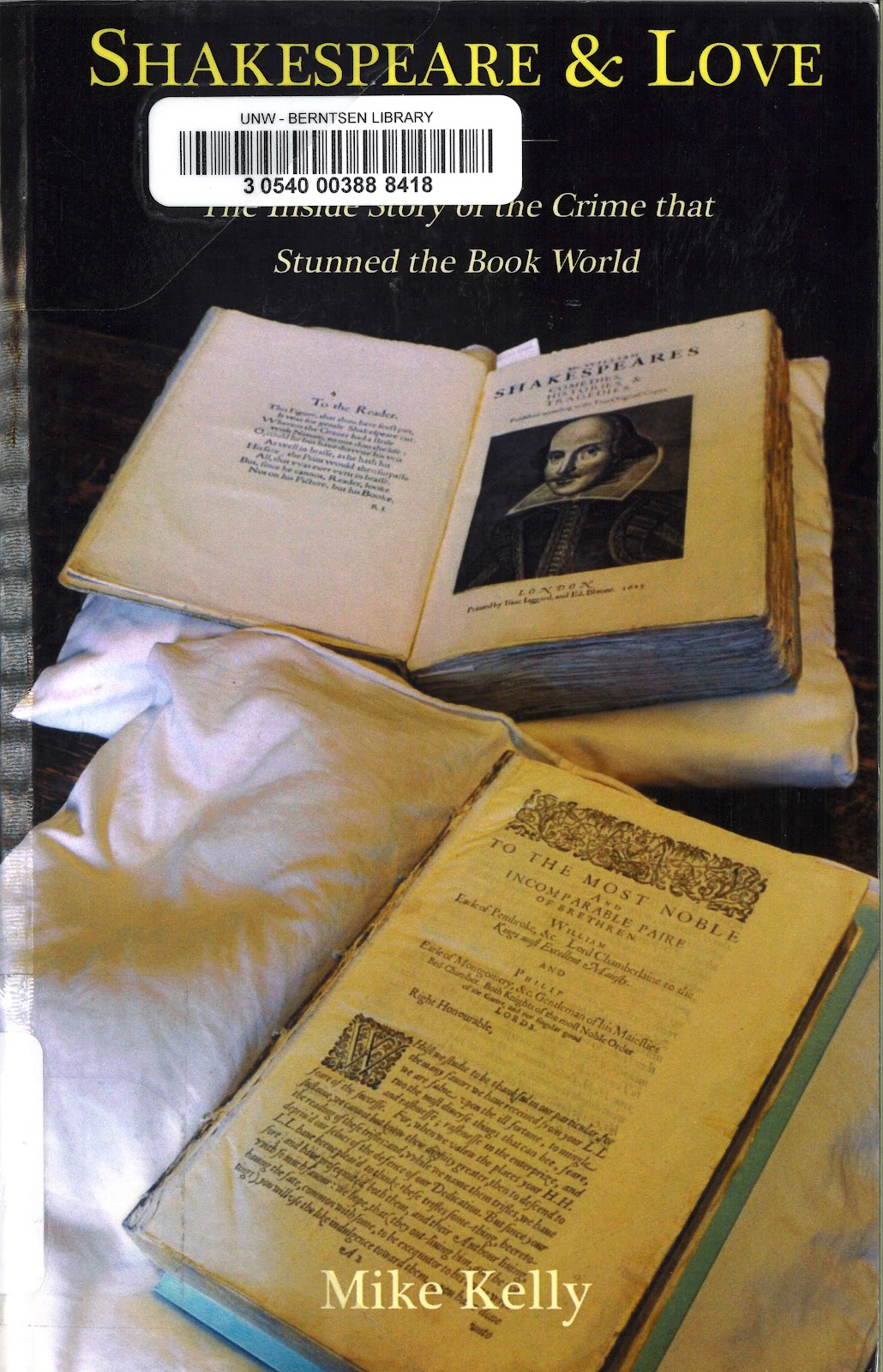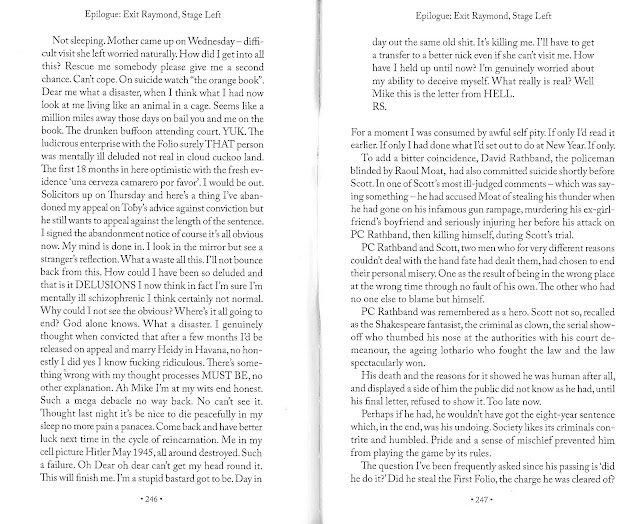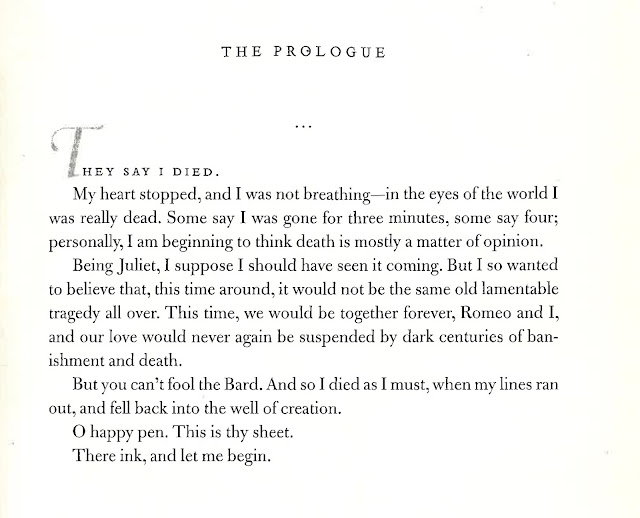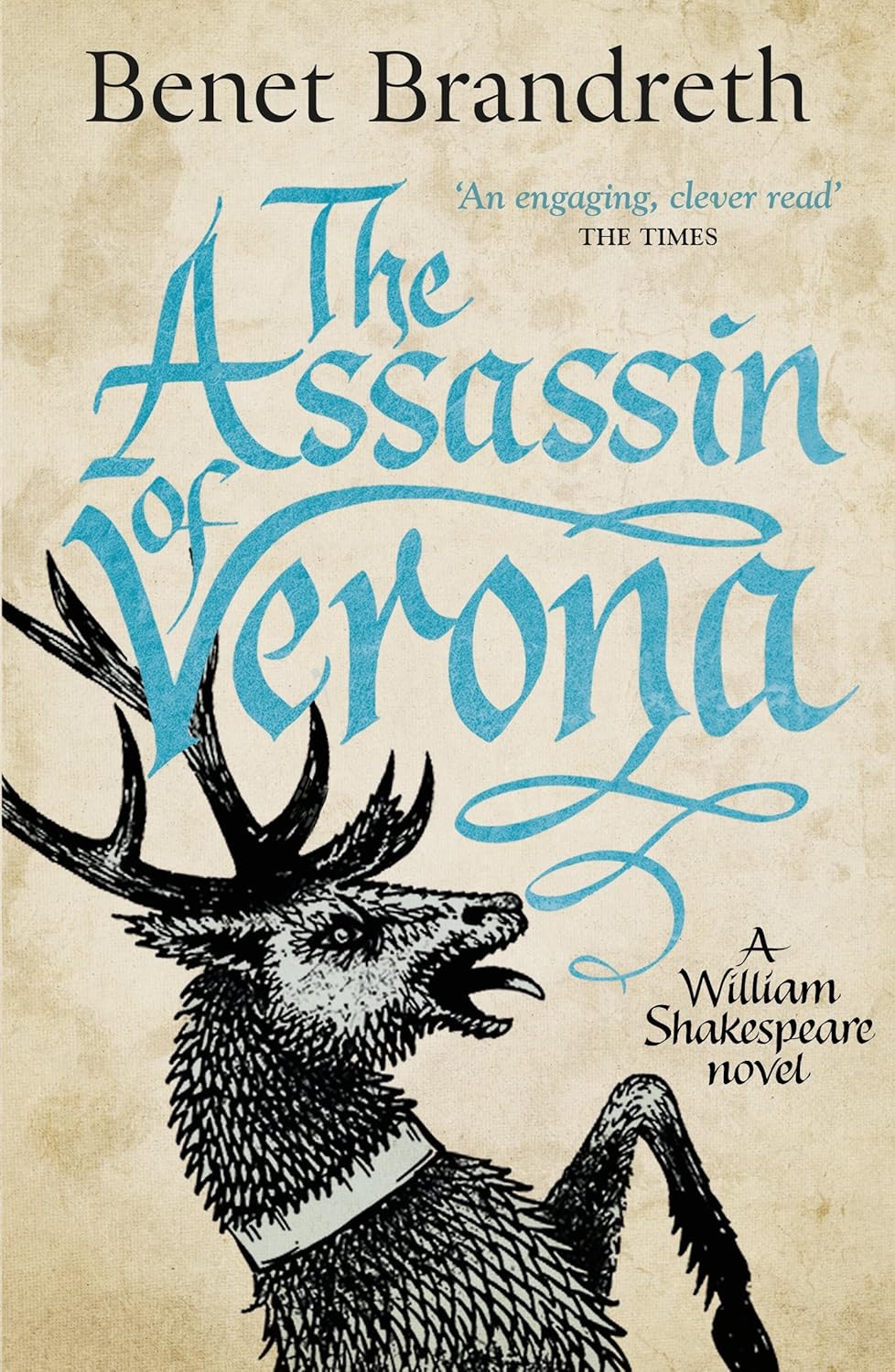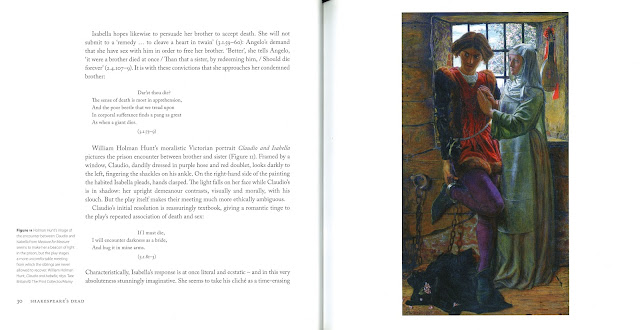Do you remember the interesting film Stealing Shakespeare, which tells the story of the theft and recovery of the Durham University First Folio (for which, q.v.)?
Friday, July 29, 2022
Book Note: Shakespeare and Love: The Inside Story of the Crime that Stunned the Book World
Do you remember the interesting film Stealing Shakespeare, which tells the story of the theft and recovery of the Durham University First Folio (for which, q.v.)?
Thursday, July 28, 2022
Book Note: Three Books that—Let's be Honest—I'm Never Actually Going to Read
Fortier, Anne. Juliet: A Novel. New York: Ballantine Books, 2010.
Brandreth, Benet. The Spy of Venice. London: Twenty7 Books, 2016.
Juliet is a time-travelling novel, jumping from the present day back to 1340s Siena. As near as I can make out, some sort of modern descendant of the Capulets needs to investigate the circumstances surrounding the story of the star-crossed Romeo and Giulietta. I'm not invested enough in Shakespeare's Romeo and Juliet to explore this further. But here's the first page—maybe this is just right for you!
The Spy of Venice seems a bit more promising—it's more the sort of thing I would invest in. Shakespeare is on a spy mission in Venice. [Note: There's a second book in the series that I won't get around to reading either: The Assassin of Verona.] Yes, I might read that—except it has a three-page list of the main characters. I don't think I'll be able to make it. But you might! Here's the first chapter for you to try:
And there you have it! Three (or four) books you might like. Let me know what you think!
Wednesday, July 20, 2022
Book Note: Shakespeare's Dead: Stages of Death in Shakespeare's Playworlds
Without the subtitle, the response to this book might be, "Well—yes. Literally, yes. Figuratively, not so much." But it's not a contraction: it's a possessive.
In other words, this is not a proclamation that Shakespeare is dead. Rather, it's a book about the dead of Shakespeare—or, really, ideas about death, dying, and the dead in Shakespeare's day.
Beautiful images complement a rich text that provides readings of death-related elements of the plays and explorations of Shakespeare's culture's ideas of death.
I also greatly appreciate the book's starting point. Where does one go to examine ideas of death in Shakespeare? The most famous Shakespeare quote of them all, right? In this case, no. We go to Measure for Measure to learn what Claudio and the Duke have to say about it.
I can't give you that whole chapter—it's too long—but I can give you a sampling of the writing and the images you'll encounter.
(and to support Bardfilm as you do so).
Shakespeare, William. The Riverside Shakespeare. 2nd ed. Gen. ed. G. Blakemore Evans. Boston: Houghton Mifflin, 1997.
—The Tempest

